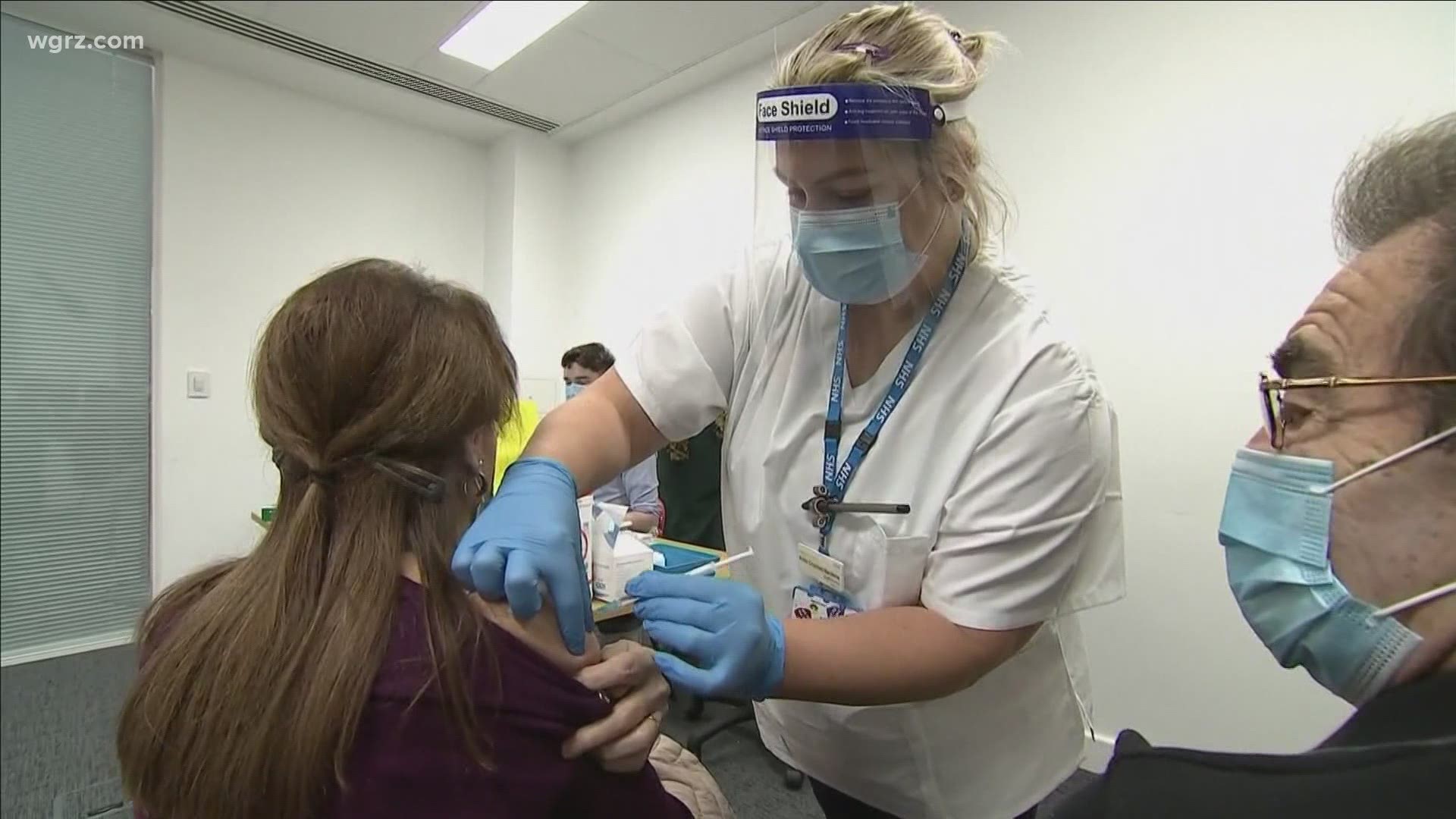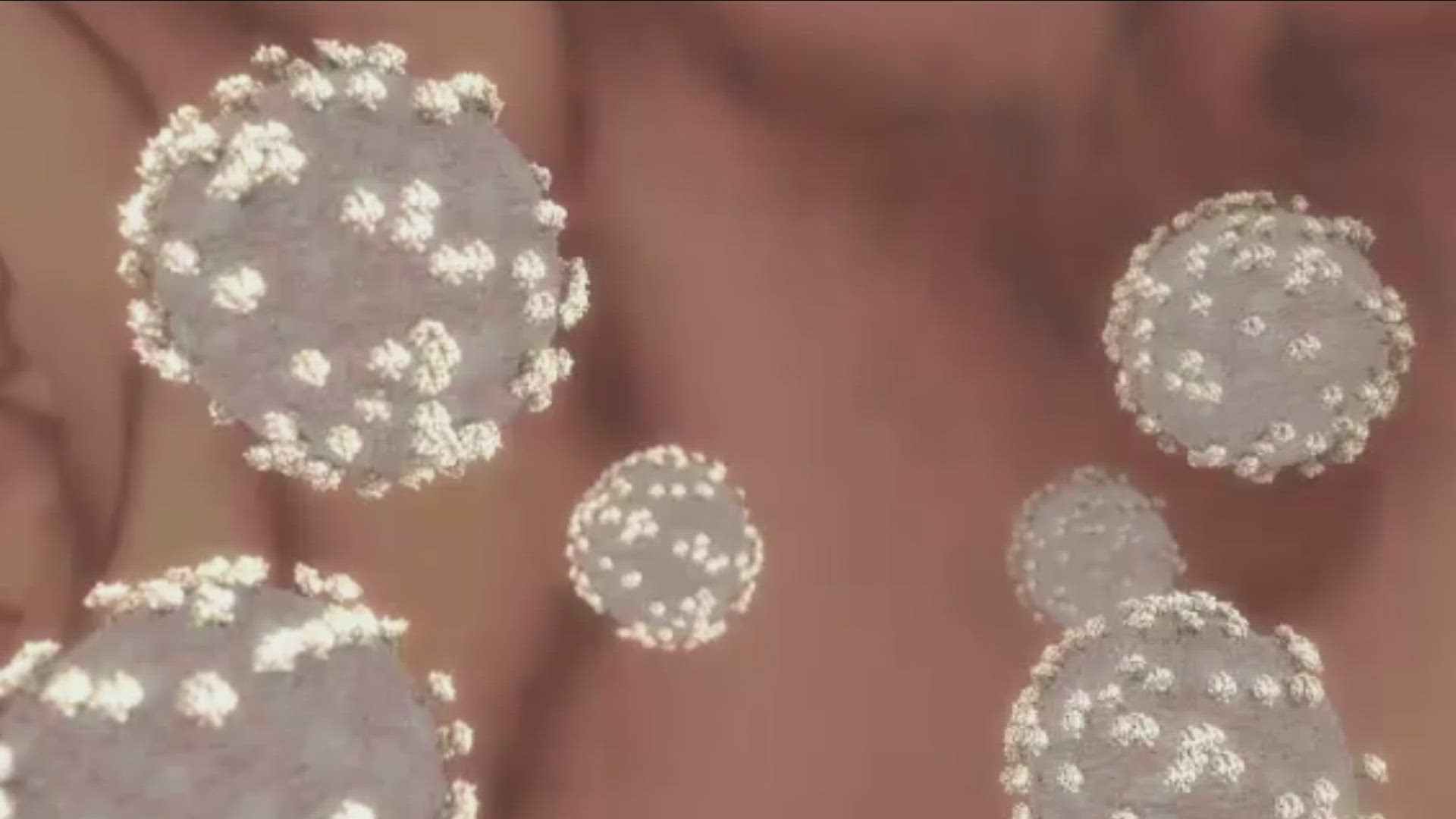NIAGARA COUNTY, N.Y. — As counties recover from the post-holiday COVID-19 surge, Niagara County has seen improvement over past 49 days, cutting its positivity rate in half.
On January 2 and 3, the seven-day rolling COVID-19 positivity rate in Niagara County was 10.4 percent, the highest it has been in 2021.
The rate hovered at 10 percent or higher until January 9, when the rate dropped to 9.8 percent, and it's been decreasing since.
As of February 21, the state reports Niagara County having a COVID-19 seven-day rolling positivity rate of 2.7 percent. The rate had just dropped below 3 percent on February 19 for the first time since November 6.
Currently, Niagara County reports having 303 active cases of COVID-19 in its' area. Of those cases, 298 are isolating at home, and five are in the hospital, as of the county's February 23 report.
The county says it has seen 14,787 cases to date, of which 14,199 have recovered and 285 have died. Niagara County residents have been tested for COVID-19 321,083 times.
Human coronaviruses are usually spread through...
• The air by coughing or sneezing
• Close personal contact, such as touching or shaking hands
• Touching an object or surface with the virus on it, then touching your mouth, nose or eyes before washing your hands.
Help stop the spread of coronavirus
• Stay home when you are sick.
• Eat and sleep separately from your family members
• Use different utensils and dishes
• Cover your cough or sneeze with your arm, hot your hand.
• If you use a tissue, throw it in the trash.
Lower your risk
• Wash your hands often with soap and water for at least 20 seconds. If soap and water are not available, use an alcohol-based hand sanitizer.
• Avoid touching your eyes, nose, and mouth with unwashed hands.
• Avoid close contact with people who are sick.
• Clean and disinfect frequently touched objects and surfaces.
• If you are 60 or over and have an underlying health condition such as cardiovascular disease, diabetes or respiratory illnesses like asthma or COPD, the World Health Organization advises you to try to avoid crowds or places where you might interact with people who are sick.




